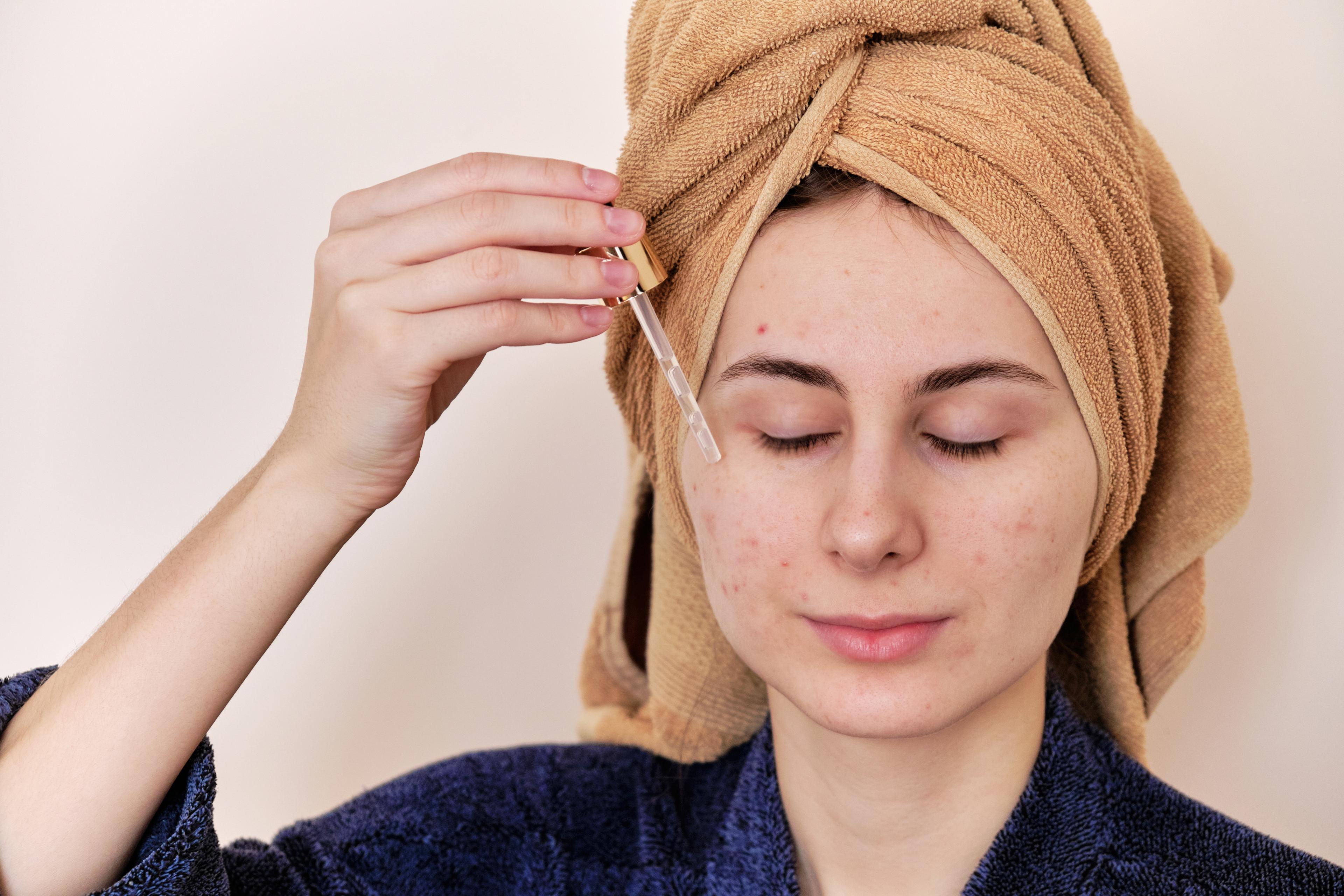It’s acne awareness month and, here at Glowday, we’re covering all things acne treatment. With the cost of living at an all time high, we asked dermatology doctor, Dr Sonia, for her recommendations when it comes to effective acne products that you can pick up over the counter, so you can treat your acne without breaking the bank. Here’s what she said…
Five Over the Counter Products for Treating Acne: A Dermatologist's Top Picks
Best over the counter acne products
Many over-the-counter (OTC) acne products are available to treat mild acne or periodic breakouts. It’s important to know which OTC acne products work, what ingredients to look for and when you should seek medical help. You shouldn’t delay seeking medical help if you’re unable to get your breakouts under control or they are affecting you in any way.
Here are my top 5 over the counter acne products:
1) Acnecide (benzoyl peroxide)
The reason I like Acnecide is that it kills bacteria that causes acne and also has an anti-inflammatory effect.
2) La Roche-Posay Effaclar Duo + Anti-Blemish Moisturiser
This product contains niacinamide, which helps reduce the appearance of acne as well as marks, and salicylic acid, which unclogs pores.
3) La Roche-Posay Effaclar Micropeeling Gel
The Effaciar Micropeeling Gel is another product that contains salicylic acid, which, as mentioned above, is brilliant for unclogging pores and helps with excess sebum (oil).
4) Malin + Goetz 10% Sulphur Paste
Sulphur is a great ingredient that removes the dead skin cells that clog pores - and it helps remove excess oil.
5) ZitSticka Goo Getter Spot Clarifying Dots
These hydrocolloid patches help skin heal in a moist environment, and this product also contains acne fighting ingredients like niacinamide and salicylic acid.
Dermatologist advice for using acne fighting ingredients
When it comes to benzoyl peroxide/acnecide, you should be aware of it’s possible side effects, which include dry skin, scaling, redness, and burning and stinging - especially if you have sensitive skin. Also, be careful when applying benzoyl peroxide, as it can bleach hair and clothing
With salicylic acid, possible side effects include mild stinging and skin irritation, so start with a lower percentage and gradually build up.
I recommend beginning with lower strength acne products, as this can help minimise redness, dry skin and other skin problems. If needed, introduce slowly over several weeks and then steadily increase the strength of the product you use and how often you use it. This helps your skin adjust to the treatment gradually.
It is also really important to be patient. Treating acne takes time and patience. It may take two or three months of daily use of an acne product to see results. And acne may look worse before it gets better. Do not use several agents at one time as you will increase your chances of side effects and irritation.
Top tips for treating acne at home
If you’re looking to treat your acne at home, my top tips are:
1) Be gentle
Make sure you are gentle with your skin and use a moisturiser suited to your skin type, as acne treatments can often be drying.
2) Keep cleansing to a minimum
Be careful not to overwash! Washing your face twice a day is totally fine.
3) Let your skin heal naturally
If you pick, pop, or squeeze your acne, your skin will take longer to heal and you increase the risk of getting acne scars.
4) Select non-comedogenic products
Make sure the skincare and makeup you are using is labelled non-comedogenic, as these will be less likely to clog your pores
5) Stay out of the sun
Stay out of direct sunlight and off tanning beds. This is because not only does tanning damage your skin, but some acne medications make the skin very sensitive to ultraviolet (UV) light too, which you get from both the sun and indoor tanning devices.
6) Know your OTC options
Do speak to your pharmacist, as they can also help with OTC acne options.
7) Ask for help if you need it
If your acne doesn't improve after two or three months of home treatment, see your GP or a skin specialist (i.e. a dermatologist) for a prescription. I often emphasise the importance of treating acne early and not falling for miracle cures online, as acne can have a significant impact on people’s emotional wellbeing. If acne is affecting a person psychologically, however mild it may be, please see your doctor.
Want to get your acne-prone skin in check? Find a skincare practitioner, quickly and easily, using Glowday's search tool, and get glowing!

